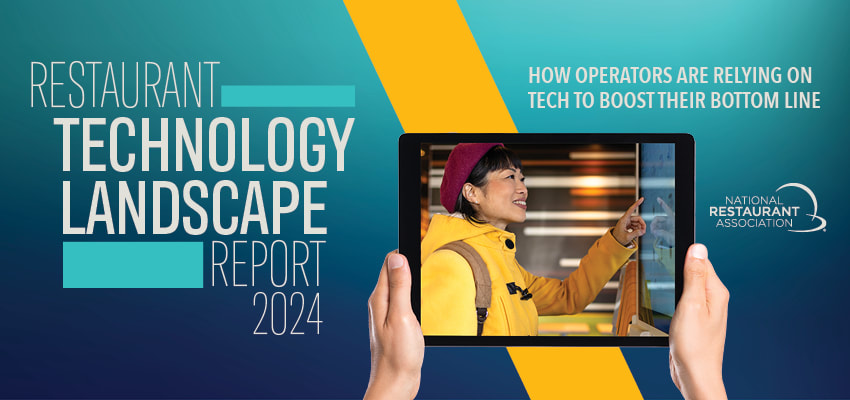 You may have heard that the Department of Labor (DOL) released its final overtime rule in April. This new rule significantly increases the minimum annual salary threshold determining overtime pay eligibility under the Fair Labor Standards Act (FLSA) from $35,568 to $58,656.
Legal Appeal News The National Restaurant Association Restaurant Law Center filed a lawsuit against the rule in May asking for a temporary restraining order. The court decision came through on Friday, June 28, 2024 and unfortunately the court did not rule in their favor. Restaurant Law Center staff are analyzing additional legal options. More updates will follow. What Restaurants Should Do Now The Wisconsin Restaurant Association and the National Restaurant Association recommend that restaurants do the following to ensure that they are in compliance with this rule:
For more information, check out these resources: DOL: Final Rule on Overtime Protections, DOL: Final Rule Webinar, DOL: Earnings Threshold Chart, DOL: Small Business Compliance Guide, DOL: Final Rule FAQ Questions? Email or call the AskWRA Team at 608.270.9950
0 Comments
 You may have heard about a new law that puts in place measures relating to how third-party delivery companies interact with restaurants to curb certain third-party delivery company business practices that are harmful and costly to restaurants. WRA lobbied for this law which is highly beneficial to restaurants and gives them the choice whether or not a third-party delivery company can deliver their food! The law goes into effect today, July 1, 2024. Under the new law:
This means that restaurants can now report a third-party delivery company that is listing the restaurant without their consent to the Department of Agriculture, Trade & Consumer Protection.
If you have questions regarding this law regarding third party delivery (2023 Wisconsin Act 75), please contact the DATCP Bureau of Consumer Protection at 1-800-422-7128 or e-mail [email protected]. You can also email or call the AskWRA Team at 608.270.9950.  You may have heard that the state passed a law allowing businesses in certain areas of the state to extend bar time during the Republican National Convention in Milwaukee in July allowing businesses to capitalize on the economic opportunity the convention will provide. However, The Wisconsin Restaurant Association has heard that some municipalities in Southeast Wisconsin are considering passing ordinances that would opt them out of the extended bar time. The Wisconsin Restaurant Association is sending a letter to municipalities in the counties of Kenosha, Racine, Walworth, Rock, Milwaukee, Waukesha, Jefferson, Dane, Ozaukee, Washington, Dodge, Columbia, Sheboygan, or Fond du Lac County encouraging them to consider allowing those who could benefit from this extension to be allowed to do so. If you feel that your municipality should embrace the benefits that may come with the extended bar time, please consider reaching out to your municipal leadership. Additionally, you may want to contact nearby hotels who may be hosting these convention guests and let them know if your operation will be open additional hours. So, when asked by their guests for dining and entertaining options, they can share your location. If you feel that you do not wish to stay open for whatever reason, you always have the ability to set your own hours – and are under no obligation to extend your hours. Staying open later is optional, not mandatory. However, please support other businesses who are located near convention hotels who may be interested in serving these visitors. WRA has heard that restaurants in Wisconsin have been of specific interest by the Department of Labor for Wage & Hour Audits to ensure labor law compliance.
Do you know all the labor laws that businesses must follow - including the laws specifically relating to employment of teens? Are all of your managers following these laws? This is a good time to double check to avoid the serious consequences of labor law violations. WRA consulted with Attorney Barry Chaet who routinely represents restaurants in wage and hour audits to provide practical guidelines for restaurants. This is a must read for all restaurant operators! Department of Labor Audits Guide to laws and regulations for restaurant owners from attorney Barry Chaet
Other Resources From WRA Teen Labor Basics Laws and Regulations Info for WRA Members - You will need your member login to access this information – Email Christina Nistler for assistance Questions? The AskWRA Team is here to help! Call 608.270.9950 or email [email protected] The payment card settlement sets aside at least $5.54B for millions of US merchants who for years paid artificially inflated interchange fees.
If your restaurant accepted Visa and Mastercard between Jan. 1, 2004 and Jan. 25, 2019, then you could be entitled to a share of the settlement. Visit the official class action website to submit a claim. You don't need to gather your credit card records to submit a claim, you just need to provide proof of business ownership. Once you submit your claim, processing can take several weeks. The deadline for submitting a claim has been extended to August 30, 2024. You don't need to have the claim processed by August 30, just submitted. Check out WRA's flyer for more details on the settlement and filing a claim. The storm last night in Southern Wisconsin caught a lot of people by surprise. Was your business impacted? Is your business prepared for natural disasters? Even a severe storm that causes your business to shut down for a period of time can have an impact. Here are some helpful resources on what to do when disaster strikes - large or small - and what you can do to be prepared.
Insurance Coverage If the recent storm affected your business, make sure you check in with your insurance provider. Even if there wasn’t physical damage, your business may qualify for business interruption coverage. Property Damage If your business suffered some damage, check out this information that WRA created for our members on handling property damage. Be Prepared You hope it never happens to your restaurant, but it’s important to be prepared if disaster strikes. Pre-planning and a good blueprint for what to do if a disaster strikes can have a big impact on the safety of your employees and guests and the ability of your business to recover quickly. The National Restaurant Association provides helpful restaurant-specific disaster preparedness guides. Also Ready.gov has a helpful Severe Wind & Tornado Toolkit. Questions? Email or call the AskWRA Team at 608.270.9950 Is Your Business in Surcharge Compliance? Mastercard and Visa are cracking down on merchants who are not following surcharge rules. A Wisconsin restaurant recently was hit with a $25,000 fine from Visa for non-compliance with surcharge rules! Do you know what is allowed and what can get you in trouble? WRA has all the facts to help you stay compliant. Over the last few years, as food, labor and property costs have increased, the trend of surcharging has emerged to help offset the cost of accepting credit cards. But what some merchants don’t know is that there are specific rules regarding surcharges that need to be followed. And there are serious consequences for not following them. Here are the facts
What happens if your business is found to be in violation of the surcharge rules? If you receive a notice of a violation of the card brand surcharge rules, you will not be able to address the fines with the card brand (Visa, Mastercard, etc.) directly. You are required to work with your credit card processor. Merchants do not have a direct relationship with the card brands so Visa, Mastercard, etc. would not be able to help you directly. The violations flow from the card brand to the sponsor bank, the sponsor bank to the processor, and finally from the processor to the merchant. Here’s an example of Visa’s process: If your business violated surcharging rules, then, unfortunately, $25K is the first-tier fine for surcharge non-compliance. Visa may charge the sponsor bank an initial $1K for a first-time offense notification and it is up to the bank and processor if they pass that to the merchant (likewise if there are additional fines like the $25K). Within that notification they allow 30 days to rectify the non-compliance. If non-compliance is not mitigated within that timeframe, or if additional time is not requested, then Visa will assess the $25K non-compliance assessment. If non-compliance continues, then it will reach a second tier assessment, and so on. Click here for all the facts on surcharges, convenience fees and cash discounts to help you stay compliant and avoid huge fines. Thank you to Heartland for providing this information.  Kristine Hillmer and Dawn Faris from the Wisconsin Restaurant Association recently met with Adesso Capital CEO Damon Maletta to discuss the latest updates on how our partnership can help restaurant owners. With decades of restaurant experience, the Adesso team gets our industry and knows how to help you. We're particularly excited about three things we learned during our meeting: 1. Tip Tax Credit for EMPLOYERS is something you must look into Taking advantage of the FICA tip credit for businesses could mean you get a big refund. If your staff collects tipped wages, you - as the business owner—can claim a credit on the federal taxes you've already paid on those tipped earnings—and you may even be eligible to turn that credit into a refund.* Don't assume you've received this - most business owners haven't! To give you an idea what this means, Adesso recently calculated the credit for a restaurant group in Texas that has since received a credit from the IRS amounting to $420,000 across 3 of their 5 locations. The FICA Tip Credit isn't tied to COVID-relief dollars or special government funding, which means you can collect now and in the future. Check with Adesso to calculate your credit through our website. Call 800-737-3751 to talk to someone at Adesso. Be sure to let them know you're with the Wisconsin Restaurant Association More info on FICA Tip Tax for Employers 2. With Adesso's extensive LENDING options, you'll find a solution that's right for you Your finances are a sensitive area and you need to feel confident your lending partner has your best interests at heart. Borrowing options range from $10,000 to $1 million and Adesso’s team will source the best loan for your needs. Whether it’s time to expand or remodel, or you simply need a cash injection for day-to-day operations and payroll, they can ensure you have the time and money to continue doing what you love to do best. Discover Lending Options 3. If you have not yet filed for 2021 ERC credits, the time to do so is now Since enacting a moratorium on processing claims, the IRS has not yet confirmed a specific resumption date but has stated they anticipate it will be sometime in the late spring. If you haven't yet taken advantage of this government program, Adesso is once again here to help. Check into your ERC eligibility If you have questions about WRA's partnership with Adesso or any of these opportunities, please feel free to reach out to: Dawn Faris, Vice President Membership & Business Development Wisconsin Restaurant Association [email protected] 608.216.2834 *Depending on your corporate structure or entity type, the credit you receive on FICA taxes reported and paid may result in a tax refund for owners and shareholders. The bipartisan Tax Relief for the American Families and Workers Act of 2024 (H.R. 7024) would mean major tax savings on investments by restaurants and small businesses.
The provisions in this bill would restore business interest deductibility and bring back the 100% bonus depreciation for capital equipment purchases that make it easier for restaurant operators to remain competitive and improve economic growth. The bill has been cleared for a Senate floor vote as directed by Senate Majority Leader Schumer (D-NY). Under this procedural step, the tax relief bill can now skip the Finance Committee and be voted on by the entire Senate. If this occurs, it will likely take place in the April 8 – 19 period. If you agree with the Tax Relief for American Families and Workers Act , please urge your senators to vote yes. The National Restaurant Association’s Restaurant Technology Landscape Report 2024 looks at how operators are relying on tech to boost their bottom line. The Restaurant Technology Landscape Report 2024 is based on surveys of restaurant operators and consumers.
Consumer attitudes toward restaurant technology varies greatly by demographic and service segment—fullservice, limited-service and delivery—according to new research. In the Association’s first look at restaurant technology integration since 2016—and post pandemic—data shows a good approach for operators is to match their tech investments to the customer base they serve. 76% of operators say using technology gives them a competitive edge but many believe their restaurants could do more to keep up on the tech front. Topping customers' favorite tech: Options that make it easier and faster to order and pay.
Through technology, operators have important opportunities to enhance the customer experience, amplify marketing and operate more efficiently. Today, even though the majority of operators consider the technology in their businesses to be mainstream (vs. leading edge), choosing the right tech for their customers’ convenience while maintaining high-touch hospitality is the best, most balanced approach to today’s business. Download this report for insights on how to match tech investments to the customer base you serve. |
Archive
July 2024
Categories |
|
©Copyright Wisconsin Restaurant Association. All Rights Reserved.
2801 Fish Hatchery Rd | Madison, WI 53713 Tel: 608.270.9950 | [email protected] | sitemap | terms | privacy |





 RSS Feed
RSS Feed
